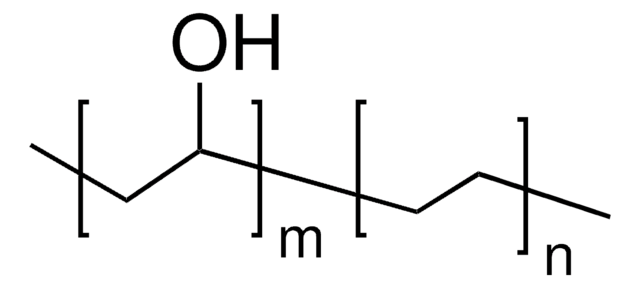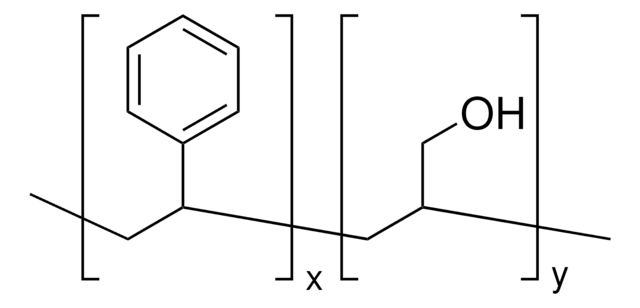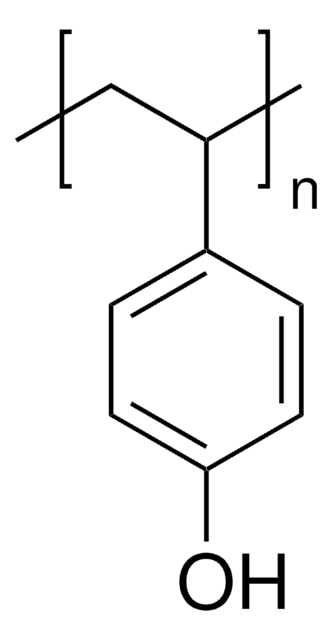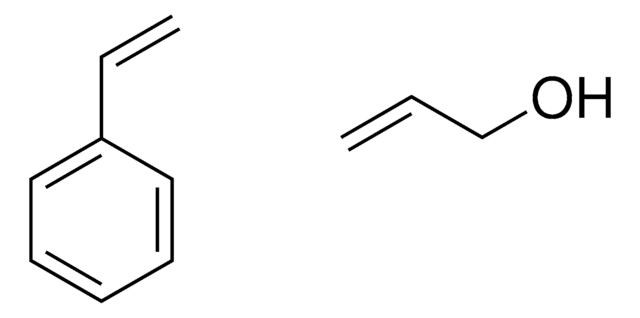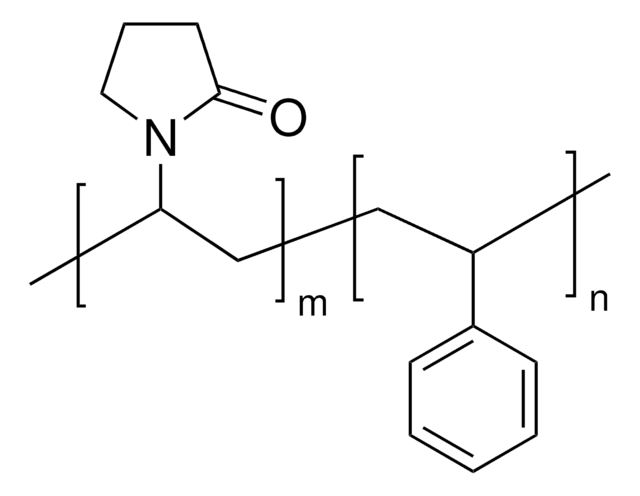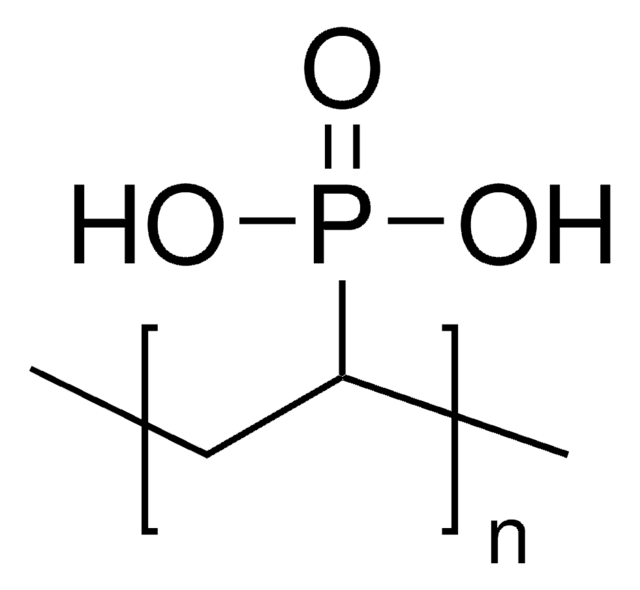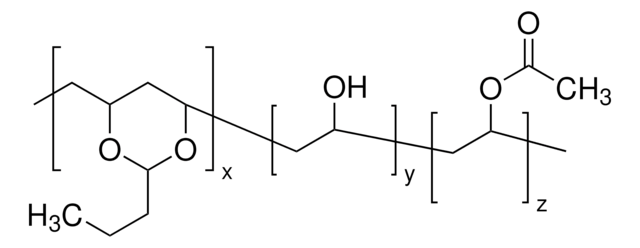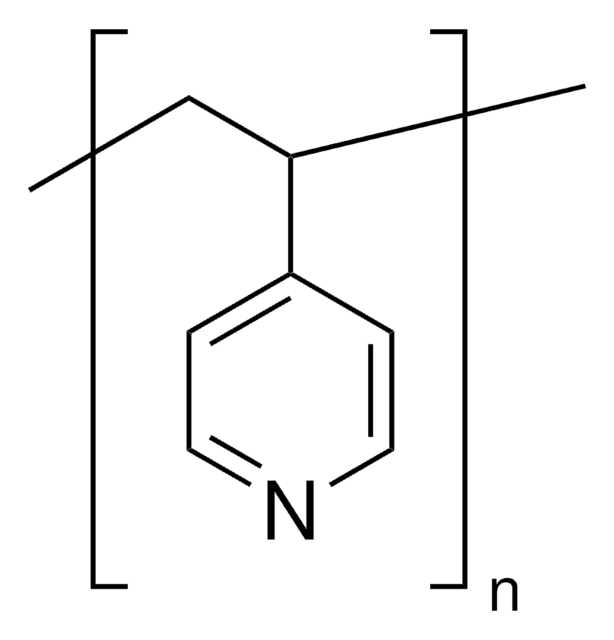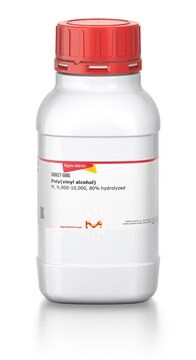推荐产品
蒸汽密度
2 (vs air)
品質等級
蒸汽壓力
23.8 mmHg ( 25 °C)
形狀
solid
分子量
average Mn ~1,200
average Mw ~2,200
成份
allyl alcohol, 40 mol %
expl. lim.
18 %
羥值
255 mg KOH/g
轉變溫度
Tg 63 °C (DSC)
密度
1.05 g/mL at 25 °C
SMILES 字串
OCC=C.C=Cc1ccccc1
InChI
1S/C8H8.C3H6O/c1-2-8-6-4-3-5-7-8;1-2-3-4/h2-7H,1H2;2,4H,1,3H2
InChI 密鑰
WXNYILVTTOXAFR-UHFFFAOYSA-N
正在寻找类似产品? 访问 产品对比指南
應用
- Reinforced Shape-tunable Microwrinkles: Uses Poly(styrene-co-allyl alcohol) as a sacrificial coating to create reinforced, shape-tunable microwrinkles on elastomer surfaces, enhancing surface functionality for various applications (T Ohzono et al., researchgate.net).
- Electronic Nose for VOC Detection: Describes the use of Poly(styrene-co-allyl alcohol) in sensor arrays for selective detection of volatile organic compounds (VOCs) via principal component analysis (I Yoon et al., Sensors, 2019).
- Proton Conductive Membranes: Focuses on developing proton conductive membranes from Poly(styrene-co-allyl alcohol) for potential use in fuel cells, highlighting the impact of hydroxyl group interactions on conductivity (FAM Loureiro et al., Polímeros, 2014).
- Gas Separation Membranes: Utilizes Poly(styrene-co-allyl alcohol) in blend membranes with polycarbonate, enhanced with nano-zeolite for improved gas separation efficiency (A Kausar, Journal of the Chinese Advanced Materials Society, 2017).
儲存類別代碼
11 - Combustible Solids
水污染物質分類(WGK)
WGK 3
閃點(°F)
Not applicable
閃點(°C)
Not applicable
個人防護裝備
Eyeshields, Gloves, type N95 (US)
其他客户在看
我们的科学家团队拥有各种研究领域经验,包括生命科学、材料科学、化学合成、色谱、分析及许多其他领域.
联系技术服务部门